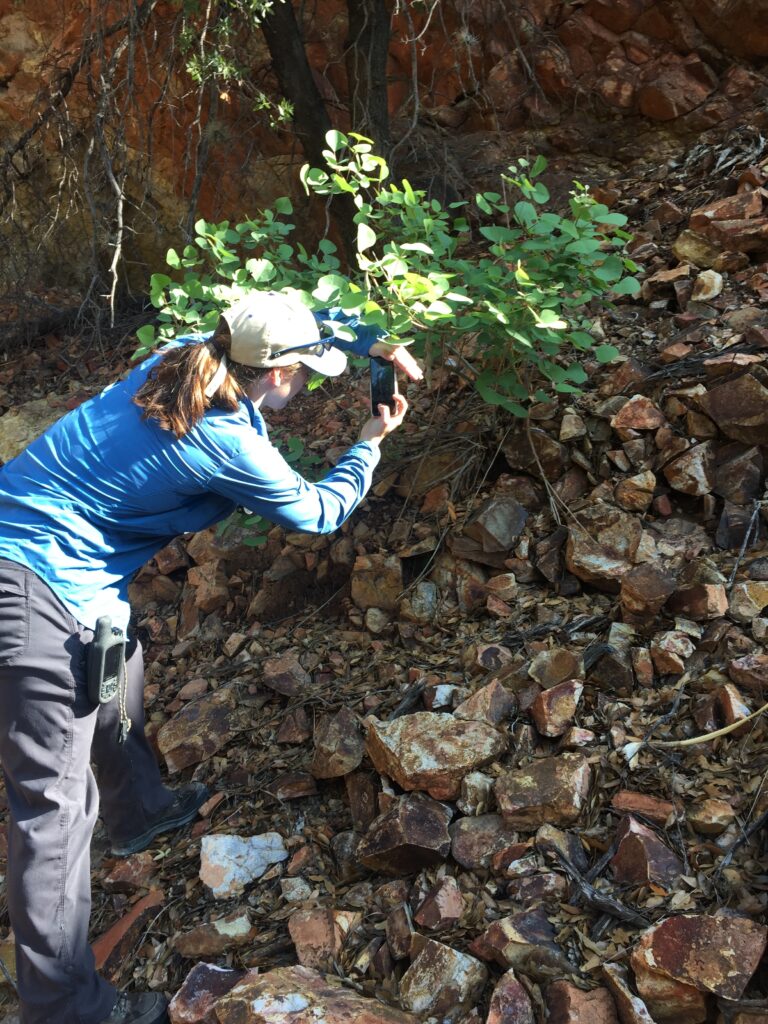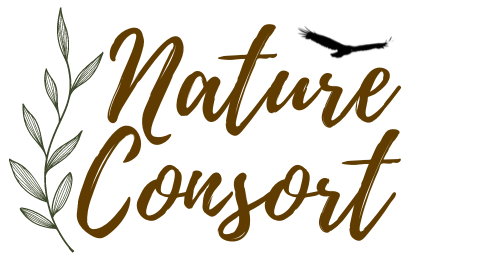This is Part 2 of our article about “Advice for Wildlife Careers Nobody Tells You”. Check out Part 1 for the “9 Steps to Begin Your Wildlife Career Path”.
This two part article series provides you with some of the most valuable resources, ideas, and methods about advancing your career in Wildlife Biology. We hope you have gained some valuable insight and actionable steps to take thus far. Let’s get right into the 11 Wildlife Career Paths you can explore.
This article provides you with 11 paths for wildlife careers and opportunities to consider when applying for jobs.
Click here to jump to our favorite websites for wildlife carers.

Let’s be real. Your connections will always be one of your most valuable resources in finding opportunities in wildlife careers. Whether you’ve recently graduated, or are looking for a new job, always ask your colleagues if they have any leads. Although there are many people working in this field, the “wildlife world” is very small. You’d be surprised with how many of your colleagues already know each other.
Since professionals tend to know one another, it is crucial that you maintain an excellent reputation. Strive to do your best work, be a team player, and always complete your work with honesty and integrity. If you have a reputation for being lazy or doing sloppy work, your colleagues will find out. You’ll need to take your opportunities and wildlife careers seriously. Grow, learn, and adjust in areas where you need improvement.
Opportunities in Wildlife Careers
1. University Jobs
Use your university contacts! Especially if you’re still completing your degree, or if you’ve recently graduated. Check university specific jobs boards – student portals, websites, and job listings posted in hallways or outside of professor’s offices. Use your university resources while your still have them. This is one of the best methods to line up a job using the current contacts you already have. Know what your professors are working on and ask if they have any opportunities. Get to know graduate students and see if they will hire you for their projects. Opportunities through university contacts may include:
Teaching, Tutor, or Teacher’s Aide – You could land a job during the school year as an assistant for an introductory biology class. You may have to be at a sophomore level or higher, but you can easily become a paid teaching assistant or tutor for a class you did very well in.
Field work – If you know about the projects professors and graduate students are managing, you can apply for a position during survey season (typically the summer months). Get hired for fieldwork all summer, working directly with the experts, and hone those wildlife skills you need to develop.
2. Laboratory Work
Laboratory work can be another option for you if you’re still attending school, or if you’ve recently graduated. Is there a particular lab at your university that is hiring, or a science lab you can help run or teach?
Introduction biology lab course – apply to run, prepare, and grade an introductory biology lab. Some universities may have paid positions, and you would run the lab during the year. Be aware though, sometimes these jobs are reserved for graduate students. However, it wouldn’t hurt to ask a graduate student if they are in need an assistant.
Work directly in a professor’s lab – you can get hired on directly to work in a university laboratory. You can analyze specimens, manage databases, or care for library animals. Expand your prospects and see if you could acquire botany and forestry skills by working in a dendrochronology lab. Just because you are a biology student, doesn’t mean you can’t seek out skills in other science departments. Other great prospects include chemistry, forestry, or geology departments.
Laboratory work (outside of university) – There are many laboratory jobs outside of university your can apply to. Depending on the lab, some will analyze water samples, air samples, or work in microbiology. Choose a laboratory that is within your discipline when you’re searching.
3. Museum Jobs
Seek out jobs in a museum as a curator. You could apply your taxidermy and identification skills at a job like this. Search for museums in your area and apply directly to the museum. To get a foot in the door, try visiting the museum first, sign up for a membership, or volunteer. If the staff and hiring directors already know you, they will be happy to see your application for an open position.
4. Continue Volunteering and Work Overseas
Seek out positions overseas. Many exotic animal sanctuaries will have opportunities for you to volunteer or work overseas. Here are some volunteer ideas: cheetahs in South Africa Cheetah Outreach, elephants in Thailand Thai Elephant Refuge, work with a variety of species in Costa Rica Alturas Wildlife Sanctuary, or the diverse and unique fauna of Australia with Love Volunteers.
Here are some additional overseas volunteer website hubs:
Consider applying for the Peace Corps to gain experience and understanding of the world outside of our country. As an ambassador of the United States, you will also bring your skills, knowledge, and education to create and assist with projects overseas. Most universities have their own Peace Corps recruiter.
5. Work for the State
Search for your State’s Game and Fish Department and apply. Here are links for California, Texas, and Florida.
Also include your state’s Department of Transportation in your job search. Oftentimes, there will be an environmental sector require multiple biologists.

6. Federal Wildlife Careers
For federal jobs, you will want to use USAJOBS.GOV to apply. You’ll need to conduction a keyword search for the type of job you’re looking for, or you can do an agency search. Include military, air force bases, border services (both international and between states), U.S. Department of Agriculture, U.S. Geological Survey, U.S Forest Service, U.S. Fish and Wildlife Service and National Park Service. These agencies will post listings specifically for biologists.
7. City or County Jobs
Don’t overlook city and county jobs. Search your county and surrounding county for opportunities. Each suburb will have their own website and hiring process. Search for the specific county or city you wish to work in. Applications for each one will be a separate process. Typically your search process would involve looking up “City of (suburb name) jobs”. You may find listings for park ranger, environmental specialist, biologist, etc.
8. Non-profit, NGOs, Tribal Opportunities
Non-profit and non-government organizations provide endless opportunities in biology. Due to their nature in serving the public or a greater cause, the salary for such agencies tend to be slightly lower. Don’t let this deter you, however! Non-profits attract some of the most skilled and studied professionals of all! Because of this, they can be difficult to get into. Non-profits tend to retain their employees and remain competitive employers. Some influential examples of non-profit agencies include World Wildlife Fund, Defenders of Wildlife, Center for Biological Diversity, Southern Sierra Research Station, Great Basin Bird Observatory, and Bird Conservancy of the Rockies.
A great way to gain direct experience and expertise is to obtain a summer (survey season) position with a non-profit organization. Although the position is temporary, this is a great way of gaining direct experience that will separate you from other aspiring biologists.
Apply for positions with Native American Tribes. Tribal agencies will hire their own environmental team. A position with a Tribe will provide you with invaluable experience. Some job postings may require that you are a Tribal Member, so make sure to read through all of the requirements before submitting your application.
9. Zoos, Aquariums, Botanical Gardens
Working at a zoo, aquarium, botanical garden, arboretum, or wildlife rehabilitation center will give you endless opportunities to grow your skills. Check if your local zoo or wildlife rehabilitation centers are non-profits. These are more examples of how volunteering first can get your foot in the door.
Some zoos and wildlife parks feature a private collection owned by private owners. Investigate what is in your area and look into how the feature is run. Working for a smaller family-owned style of business comes with it’s own rewards.
10. Consulting Wildlife Careers
Consulting businesses usually always have an environmental department. Sometimes the consulting business itself is environmentally focused. Look into large firm engineering and construction firms if you want to go into consulting. Consulting companies do tend to pay more, however they are typically extremely corporate. Employee-owned consulting companies do exist, but you’ll have to do your research. There are pros and cons to any type of work you do, so your best bet is to try it out to see if it is a good fit for you.
11. Start Your Own Business
Starting your own business will provide you with a specific set of skills that not all biologists end up developing. Becoming an entrepreneur can catapult you into a unique lifestyle and job satisfaction. Don’t be afraid to try out this option. All business technically had to begin from somewhere, usually the ground up.
Brainstorm ideas such as birding tours, nature walks, guided hiking, backpacking, and river tours. Start a business in pest removal, critter control, hunting guide, consulting firm, or tracking school/lessons. Create your own content by becoming a writer and writing books, wildlife photography, or film. If you have a specific certification, for example as an arborist, you can contract yourself out to work for bigger companies.
Here are some inspirational examples of people who started their own successful business; Tom Brown Jr’s Tracker School, The Natural Navigator, and AtoZ Environmental Consulting.
Your Job Searching Strategy
First and foremost, use your connections. We mentioned this in the beginning of this article, but this is so important, that we want to remind you again. Let your professors, colleagues, peers, and former bosses know that you are looking for work. It’s good to let your network know your skills and services are available or will be available in the near future. Oftentimes, university professors will provide you with a letter of recommendation if you’re exploring a graduate program, international work, or new job opportunities.
Scour websites regularly for job opportunities. Especially at the start of survey season or just before the seasons change. New opportunities are posted all year long.
Pro tip: If using a generalized job website such as Indeed or Zip Recruiter, note which company the posting belongs to. Go to that company’s website and apply directly to the job posting. This will prevent you from applying for false leads or positions that have already been filled.
Wildlife Job Websites
Here are some of our favorite websites to help you get started when searching for your next wildlife career opportunity:
- Texas A&M Natural Resources Job Board
- Conservation Job Board
- The Wildlife Society Career Center
- Government Jobs (USAJOBS.GOV)
- Association of Zoos & Aquariums
- American Fisheries Society
Include university websites, state agencies, and conservancy websites in your job search for wildlife careers. There are so many resources online, keep searching and applying and you will find an opportunity you like!
Finally, don’t overlook the power of LinkedIn for job searches. Some companies post to LinkedIn first or use LinkedIn exclusively to search for candidates.
We hope you found some helpful information to advance your job search efforts for wildlife careers. Nature Consort is extremely delighted for the opportunity to present this two-part article series about wildlife career paths. Thank you for being a part of our audience, and until next time, indulge in your outdoor career opportunities.
